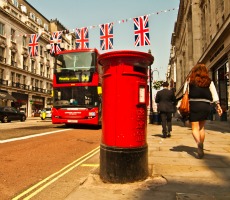The inclusive pride so many Londoners felt in its confident claim to be one of the world’s great global cities was one of the resonant themes of the capital’s success in hosting the 2012 Olympics. Yet the release of the 2011 census, shortly before Christmas, generated a more anxious discussion of diversity. There was also a familiar polarisation – on one side, those who celebrate difference and diversity as enriching the cultural life of the capital, versus those who feel deeply unsettled by the scale and pace of change which they have seen in their lifetimes, writes Sunder Katwala.

The eye-catching figure that London is now 45% white British has been intensely debated, though it was very often misunderstood. Even MPs and shadow ministers on Question Time have been heard to state that London is now a ‘majority minority’ city with a non-white majority. It isn’t – but because the ‘white British’ category conflates ethnicity and nationality.
The census shows that London is 60% white and also 63% British-born. There are many other white Londoners, including generations of Irish, or those of Polish descent whose families fought for Britain in World War Two as well as those who have arrived in the last decade. We live in a generation when most Britons of ethnic minority descent are British-born. So my house’s census return recorded six British citizens, all of us British-born, in either the 1970s or the last decade. We are only 15% ‘white British’, as it happens. Few things could be less British than to suggest that our children are somehow less British than their “white British” classmates, by virtue of being third generation British citizens, with a claim to be mixed race both through their Indian-Irish grandparents on my side of the family, and their ability to trace their mixture of Irish, English and Jewish descent a couple of generations further back on the other.
The 45% white British discussion risks, accidentally, missing that the “there ain’t no black in the Union Jack” argument was decisively settled, for all except the failing and dwindling BNP hardcore.
37% of Londoners were born abroad, though some, like Prince Phillip or Trevor MacDonald, will have acquired British citizenship a long time ago. Across England and Wales as a whole, around a third of those born abroad have been here more than twenty years,arriving across the decades between 1950 and 1990. The census itself shows that over 70% of Londoners hold a British passport, but the 8% of Londoners who do not hold a passport will include many British citizens too. (This gives London the lowest proportion of non-passport holders in the UK; this is highest in Wales, where 22% do not hold a passport). The Migration Observatory at Oxford University calculates the proportion of Londoners who are British citizens to be 78%, while 22% are foreign nationals, since the 2011 Labour Force Survey data shows that foreign citizens made up 19% of the population of outer London and 27% of those in inner London.
The British tradition is that once you are British, you are equally British, so it might be good to see some 78% British headlines in London’s Evening Standard too.
Yet perhaps the real message of the census should be this: this is who we are now. London may be the most confident part of the country about diversity – because contact creates trust, and because the city is affluent too. Outside London, there is more anxiety about change, but people know that Britain won’t be changing back to how it was in 1912.
If we want to all be proud to be British again, then we will have to come together to create a future that we want to share. Whether we celebrate the way Britain has changed or feel unsettled about it, we should recognise our shared responsibility to make sure it works. Then we might see that our arguments that any democracy should have – about what types of immigration best reflect Britain’s interests and values, how we make integration work, or what needs to change economically for opportunity to be shared fairly across society – are about how we make sure that being the ‘new us’ works for us all.
Sunder Katwala.
This article originally appeared in HOPE not hate.






